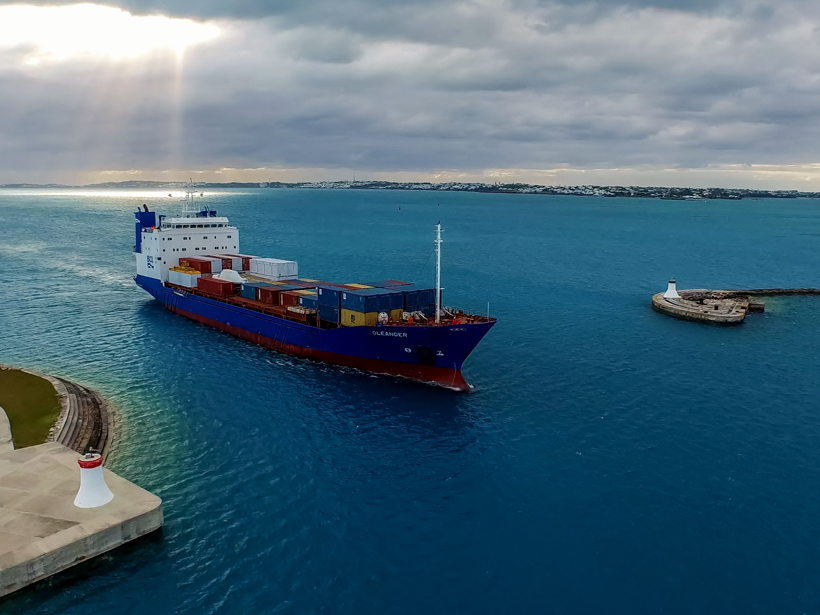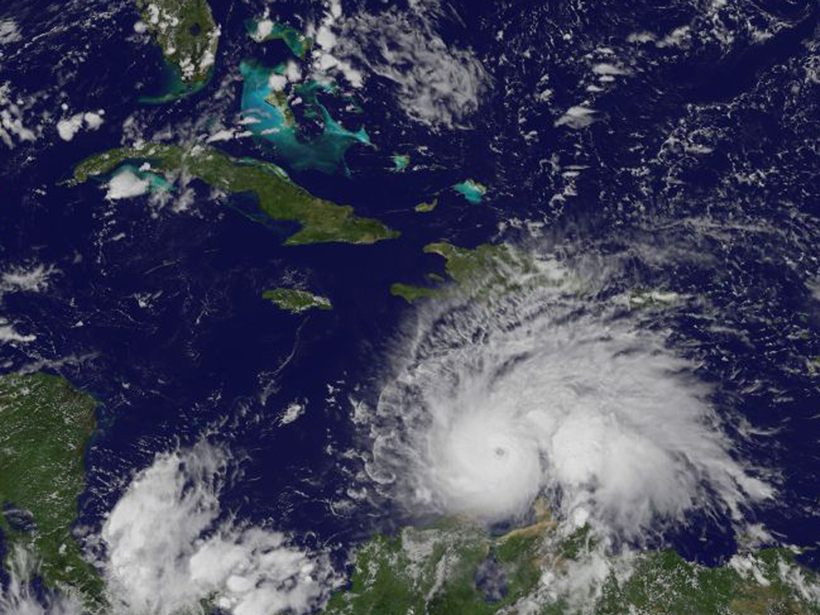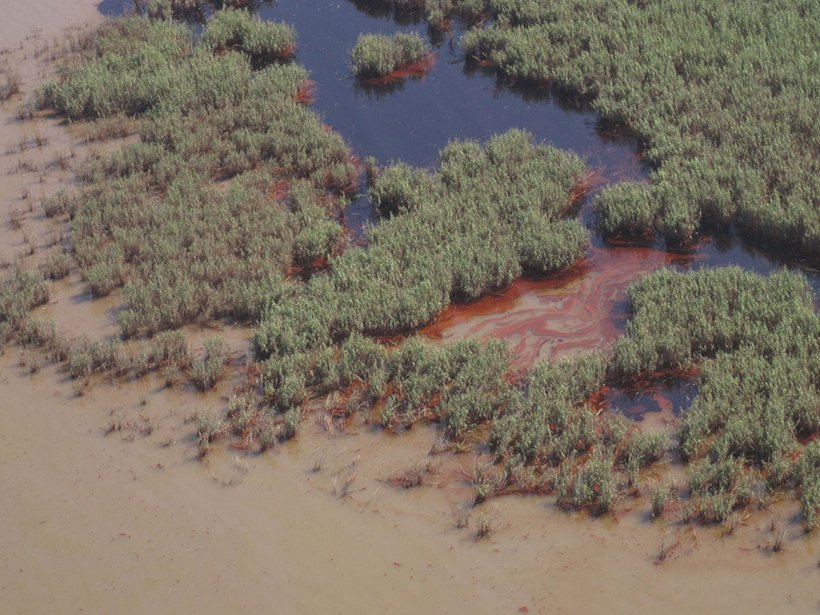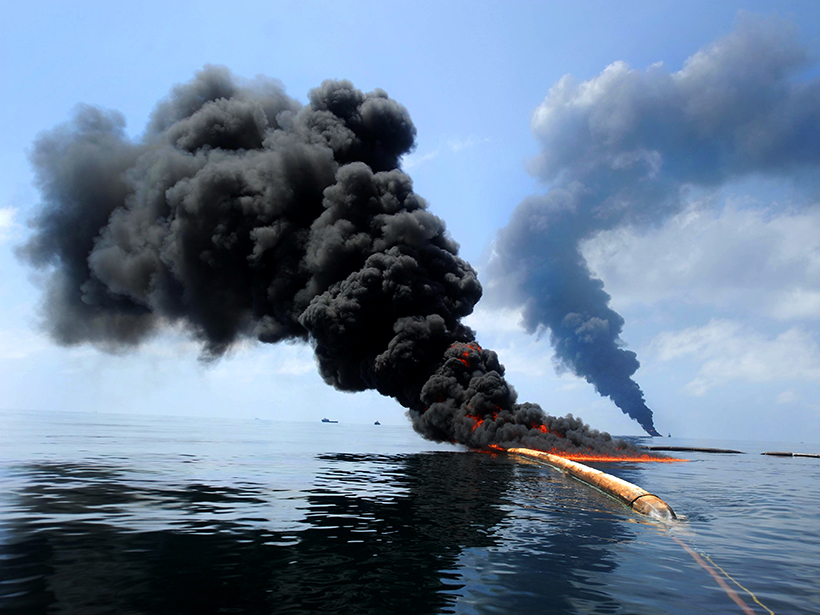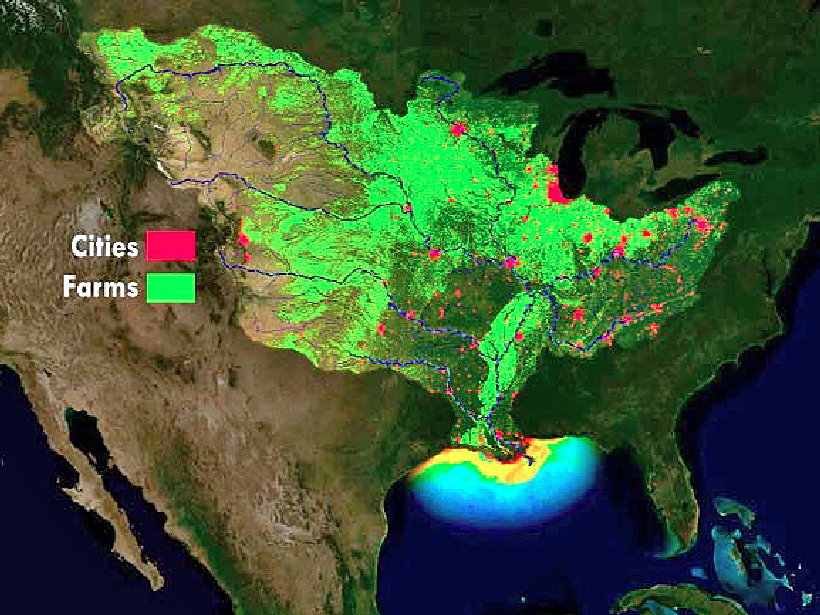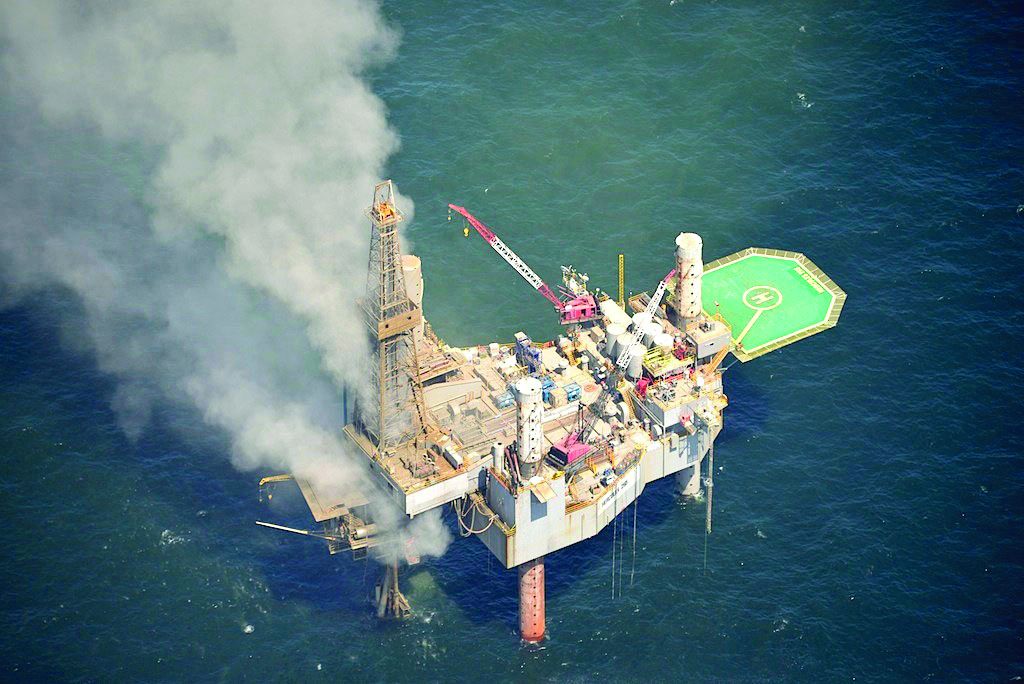The U.S. Bureau of Ocean Energy Management releases the highest-resolution bathymetry map of the region to date.
Gulf of Mexico
Packing Science into a Shipping Vessel
Oleander Workshop II: 25 Years of Operations; Narragansett, Rhode Island, 26–27 October 2016
Climate Change’s Pulse Is in Central America and the Caribbean
Nations that border the Gulf of Mexico and Caribbean Sea are ideally placed for tracking the effects of global climate change and testing innovative ways to adapt to future changes.
Oil Residues Accelerate Coastal Wetland Losses
Coastal wetland loss after an oil spill can be more extensive than after a hurricane.
Deepwater Horizon Oil Lingered and Sank, Stuck to "Marine Snow"
A new study may explain how supposedly buoyant oil from the huge 2010 oil spill coated corals and other organisms on the ocean floor.
Asphalt Volcanoes Erupt in Slow Motion
Natural asphalt seeps on the ocean floor provide a stable home for diverse marine life that sequesters greenhouse gases.
Gulf of Mexico Dead Zone Largest Since 2002
Downpours in June drove nutrients into the Mississippi River that ultimately deprived a much larger portion of the Gulf of oxygen than had been expected.
Connecticut-Sized Dead Zone Expected in Gulf of Mexico
An ensemble of four computer models evaluated river runoff, wind patterns, and other factors affecting the extent of oxygen-poor waters near the Mississippi River's mouth.
A Rapid Response Study of the Hercules Gas Well Blowout
Following the 23 July 2013 blowout of a gas production in the Gulf of Mexico owned by Hercules Offshore, scientists established a rapid response study to investigate the environmental effects.


